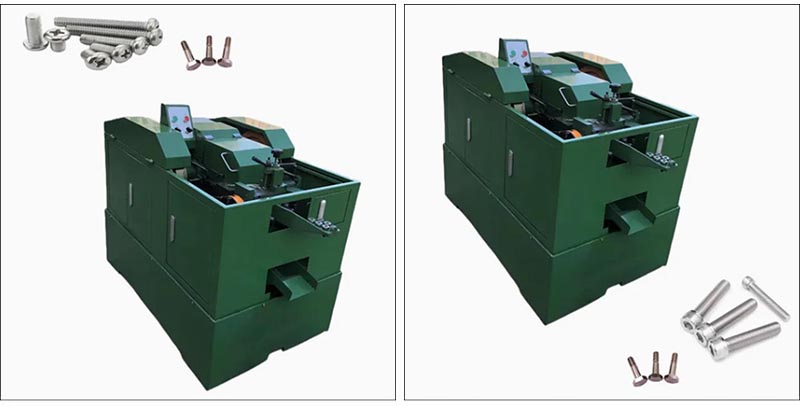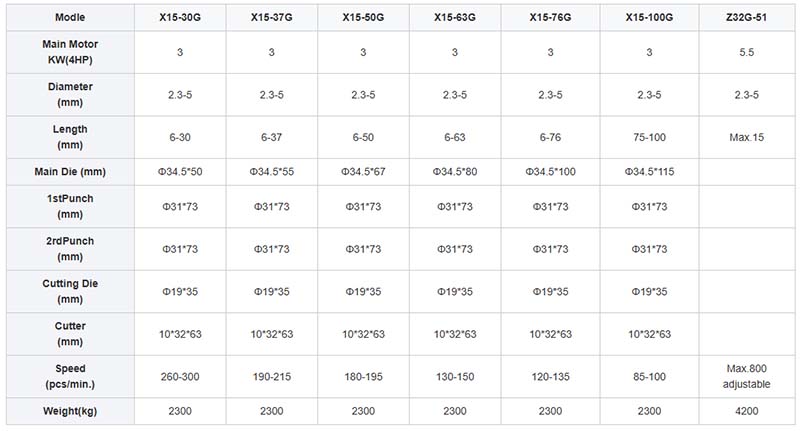
The screw making machines produced by Ronen® manufacturers are durable and can operate continuously. Our equipment is trusted by countries all over the world. If you need to equip your factory with equipment, please contact us for a customized quotation.
The screw making machine turns metal wires into screws. It straighters the wound metal wire, cuts it to the appropriate length, uses molds and punches to form screw heads, and usually rolls out threads. All these operations are completed quickly without the need to melt the metal.
In a Screw factory, the machine is usually responsible for forming: cutting blanks, heading heads, and usually performing thread processing. Afterwards, the screws may undergo heat treatment to enhance their strength, electroplating (such as galvanizing), cleaning, sorting and packaging. The screw manufacturing machine determines the operating speed of the production line.
Which kind of screws to produce depends on the cutting tools in the screw making machine. Replacing the punch, die and thread rolling wheel will change all the factors. They affect the shape of the screw head, the length of the threaded rod, and the type of thread (such as wood screws or mechanical screws). The setup takes time, so the longer the running time of each type of screw, the better.
When manufacturing screws, the machine first feeds in steel wire or stainless steel wire coils. The machine draws, straightens and cuts the wire into precision parts (blanks), and then forms the head shape under high pressure, such as hexagonal heads, coiled heads or round heads. Finally, the thread is pressed out with a thread rolling machine.


When in mass production, our screw making machine can save the cost of each Screw. It makes efficient use of metal wires (minimizing waste), operates the equipment at high speed, and automates most steps. Although the machine itself is expensive, after mass production, the cost of each screw will drop significantly.